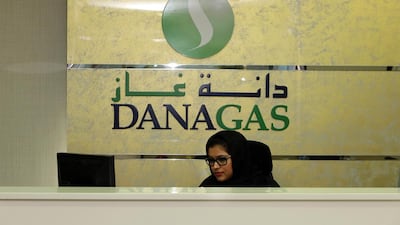Dana Gas received $40 million from Egypt towards paying its receivables, as the Middle East’s largest natural gas company continues to recover money owed to it from the North African country.
Sharjah-based Dana Gas has received a total of $88.8m from Egypt during this year, the Abu Dhabi-listed company said in a regulatory filing on Monday with the Abu Dhabi Securities Exchange, where its shares are traded.
“The monies will enable us to proceed with important growth initiatives such as drilling Balsam-8 in our Development Lease onshore the Nile Delta, which should provide incremental production to fill our onshore facilities to its capacity,” Patrick Allman-Ward, chief executive of Dana Gas, said.
Dana Gas first began operations in Egypt in 2007, becoming the fifth largest gas producer in the country, where it has 14 development leases, three exploration concessions and two processing plants. Production reached 36,800 barrels of oil equivalent per day in the first quarter of 2018.
The company’s primary focus will remain on increasing production and on drilling first offshore well in Block 6 that’s scheduled to begin in early 2019, it said.
_____________
Read More:
Dana Gas Q1 profit jumps 27 per cent
Dana Gas reaches agreement on $700m sukuk restructuring
Dana Gas inks 10-year gas sale agreement with Kurdistan
______________
The company's first-quarter profit increased 27 per cent to $14 million on higher realized prices for condensate that helped offset a production decrease in Egypt and the U.A.E., Dana Gas said in a statement on May 14.
In the first three months of the year, the company’s capital expenditure in Egypt reached $7m, it billed $32m and collected $27m. Its capital investment plans in the country for the rest of the year will “remain limited” unless the Egyptian government makes a significant payment to reduce its receivables, the company said on May 14. Its trade receivables grew to $234m by the end of the first quarter in Egypt.
The company’s troubles with litigation, claims and counter-claims related to the restructuring of its sukuk began about a year ago when the company announced it would restructure the notes due to delays in payments from Egypt and Iraq’s Kurdistan region. Earlier this month Dana Gas reached an agreement with a committee of sukuk holders to restructure and refinance its $700m sukuk, which when finalised in July will end a protracted legal dispute that sent shockwaves through the Islamic finance industry.


